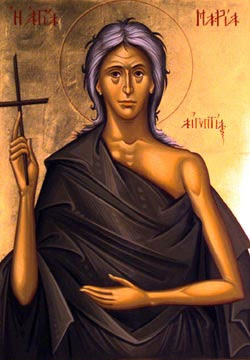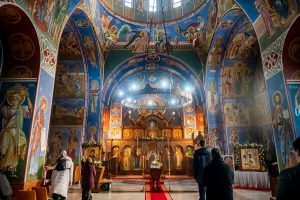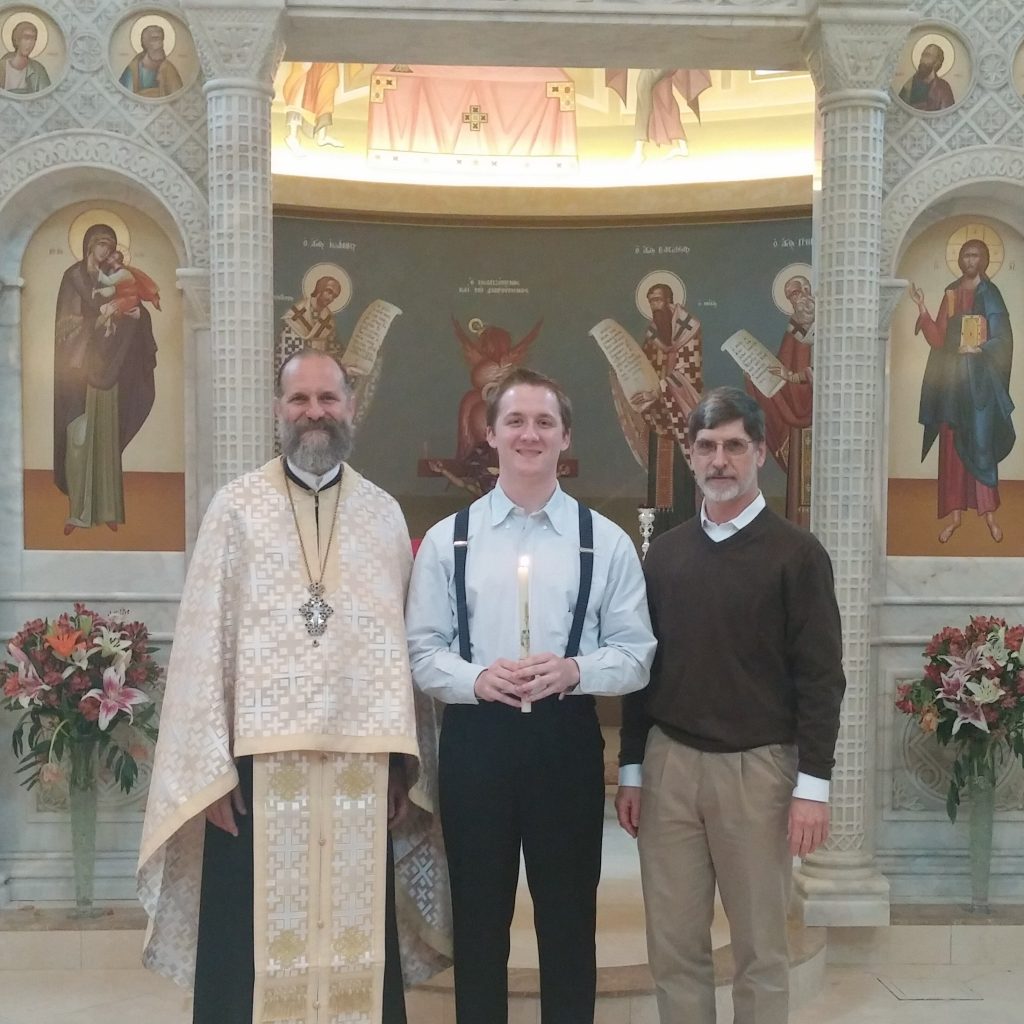Back in the 2010’s there was a distinct group of internet bloggers that were self-proclaimed “Neo-Reactionaries.” The abbreviation for this group was nRx. The nRx movement was faced with a pivotal moment in the election of Donald Trump, and essentially disappeared circa January of 2017. Why? There were a number of factors. Some of their folks were drawn into the Trumpening, which required turning away from nRx principles. Others stuck to nRx principles, and just didn’t have as much time to write due to what they were building offline. The few who did keep writing for a little while saw their audiences dwindle as folks were drawn to the Trumpening and the wildly expanding Alt-Right that was far less alternative and far less Right-wing than the groups known as Alt-Right in say, 2013.
So nRx (as an internet ideology) is dead, as far as I can tell. Which is fine with me, because what is needed is a movement that is neither “neo” nor “reactionary.” That being said, many self styled nRx thinkers were quite perceptive about a number of things, and I generally found them to be sincere, intelligent people with a decent grasp of both the extent of societal problems and the general path forward.
It is probably no coincidence that the major nRx thinkers (unlike its founder, Moldbug aka Yarvin) were almost without exception papists. There were always Orthodox Christians interacting with these thinkers, but like me (a protestant at the time) they generally were not fully aligned with the nRx “platform,” whether or not they adopted the label. In fact nRx, even in its name, mirrors “traditional” papism. Neo-Reaction is to Traditionalism as “traditional” papism is to Orthodoxy.
All this to say, the Neo-Reactionaries were right, or very close to right, on a lot of things. They were much closer to traditionalism than say the “conservatives.” One thing they got right was the three-step formula for ruling the world. Here it is:
Step 1. Become Worthy
Step 2. Accept Power
Step 3. Rule
This three-step formula for ruling the world (or a portion thereof), when put in practice, is known as “Passivism.” No, not pacifism. Passivism arose to denote the opposite of activism, just as “based” arose to denote the opposite of debased.
One of the beautiful things about this formula is that anyone steeped in modernism will reject it immediately. Telling the Modern that the steps are chronological and concurrent doesn’t help them either. Because modernity is predicated on the idea of seizing power (a very different thing than accepting power) the Modern glosses over or discards Steps 1 and 2. Its only Step 3 that he thinks he understands. (Hint: The Modern probably doesn’t understand Step 3 either).
Lets assume, just for the sake of clarification, that you—the person reading this blog post on the internet—still have some of the poison of Modernity clouding your brain, despite your best efforts to purge it. If that were the case you would look at the three steps and think Step 1 is vague and unclear, and Step 2 makes no sense because no one is going to knock on your door and say “I’d like to offer you some power, are you willing to accept it?” Now, I would never assume so badly of any of my readers as to think the above would describe you, we were only assuming for the sake of clarification. But perhaps you just aren’t sure how to explain the steps to your thoroughly modern, thoroughly liberal friend—say someone so liberal he voted for Trump in 2016 or Goldwater back in the day. Now you are prepared for his objections.
Before you try to explain anything to your friend, you might want to give his brain a chance to recover from its full saturation with the poison of liberal modernity. Take him for a walk in the woods, or along a field or stream at least. In this environment, you may be able to help him see how naturally power flows to the worthy. You could try the old adage on him “hard workers are always rewarded with more work” or you could read him some stories from the Biblical book of Judges. Ask him if he became the best at his job, if that wouldn’t cause power to flow to him in his workplace. He’ll get it or he won’t. If he still talks of power as something to be seized, he’s not ready. He may need to mull the ideas in his head for a year or two before he’s ready to understand.
Once you see how power invariably flows to the worthy, the three-step formula becomes a simple truism. You immediately see how the steps are both chronological and simultaneous. You become worthy. Power flows to you. As soon as that power flows to you, you begin to rule. At first it may only be yourself you rule, or even only a part of yourself—say, your appetite. But you continue to become worthy, you continue to accept power, you continue to rule, and your dominion increases. Soon you may not only rule yourself, but also a wife and child. But you cannot stop performing any of the steps. If you stop ruling, by doing so you stop accepting power, and you become unworthy. This is the path that kings took which led to liberal democracy. Not overnight, but over time. As the kings were refusing to rule, refusing to accept power, and refusing to become more worthy, in some places courtiers and parliaments were doing the opposite. In those places, courtiers and parliaments soon ruled in the place of the kings. This is also the path of many husbands and fathers steeped in the lies of liberal modernity.
Nothing living is stagnant. Either you are becoming more worthy and ruling a widening dominion, or you are ruling a shrinking dominion and becoming less worthy. There is no way to say “I’m happy with the sphere I rule, I don’t want to accept any more power.” As soon as you stop accepting power, you begin to be less worthy. If you rule your appetite, but refuse to rule your children, you will eventually cease to rule your appetite. Nor does ruling yourself mean rebelling against someone set above you. The father still rules the child who rules himself, and the king still rules the earl that rules the manor. But the earl who rules his manor well will find himself accepting power not just from his subjects, but also from the king, and the child who rules himself will find himself accepting power from his father. Consider well the difference between the child who rules himself well and accepts power from his father, and the child who attempts to seize power from his father. Seizing power always indicates a lack of worthiness.
So what do you say to your friend when he turns to you and says, “but how do I even start? How do I begin to become worthy?”
The first step in becoming worthy is to recognize unworthiness.
This holds true no matter how worthy one becomes. This is why the greatest saints immersed themselves in the Jesus Prayer: “Lord Jesus Christ, Son of God, have mercy on me, a sinner.” No matter how worthy you become, you will always be unworthy. This is why we will always be working on Step 1. If the steps were strictly chronological, none of us would ever get past Step 1. But they aren’t strictly chronological—they are at the same time chronological and simultaneous.
I am often asked how to “do” passivism. I could list hundreds of actions. Go to Church. Grow a garden. Throw away the TV. Dress well. Have children. All of these are distinct actions that can be part of passivism. But you can also do these things and still be an activist. The difference in the activist and the passivist is that the activist’s focus is always on attempting to seize power, while the passivist’s first focus is always on becoming worthy. Passivism isn’t another way to do activism. It isn’t a secret strategy for more effectively accomplishing the goals of activism. It is the opposite of activism, and an activist and a passivist trying to solve the same problem will approach it from opposite directions.
If the following statements make sense to you, congratulations! You have purged the poison of modernity from your brain, and are breathing the clean, pure air of traditionalism.
How can we effect a political change in our nations? By ruling our appetites.
How can we correct the wandering from the Tradition in our churches? By ruling our families.
How can we change a decadent and debased culture? By ruling our tongues.



